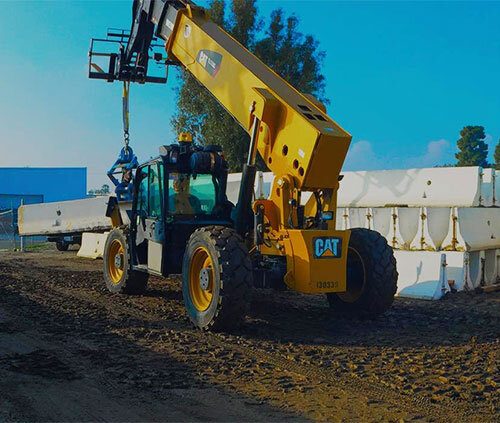Scissor Lift Rental: Safe and Reliable Lifting Solutions
Scissor Lift Rental: Safe and Reliable Lifting Solutions
Blog Article
Optimize Your Spending Plan by Comprehending the Prices Related To Building Equipment Rentals
Recognizing the complete range of costs linked with building tools rentals is essential for optimizing your budget. While the first rental fee might seem simple, many extra expenditures-- such as transport, gas additional charges, and upkeep-- can swiftly gather, affecting your financial planning. Moreover, being aware of various fees and the ins and outs of rental agreements can assist avoid unexpected financial worries. What strategies can be employed to properly manage these costs and ensure an extra effective rental experience?
Overview of Rental Prices
When taking into consideration building and construction equipment leasings, comprehending the associated expenses is critical for reliable budgeting and project preparation. Rental costs can differ dramatically based on a number of variables, including devices type, period of leasing, and location. The preliminary rental charge typically shows the equipment's market need and its linked operational abilities, affecting the total expenditure.
In addition to the base rental price, supplementary costs may occur, such as transport fees, fuel additional charges, and maintenance charges. It is essential to make up these extra expenses to properly examine the overall expense of renting out equipment. The rental duration can influence pricing; longer services may certify for reduced rates, while temporary leasings could sustain higher day-to-day charges.

Failure of Rental Prices
An extensive understanding of rental prices is necessary for professionals and task managers intending to optimize their budgets. Rental prices for building tools usually include several components, including base prices, time-based fees, and use fees.
Base rates are the core costs related to the leasing of the equipment, typically determined by the type and dimension of the equipment. These rates can differ considerably, affected by variables such as tools need, availability, and local market patterns. Time-based charges, which might be daily, weekly, or monthly, offer to accommodate various task timelines and rental periods.
In addition, rental rates might include use fees, which apply when tools is made use of past a specified limit, guaranteeing that the rental company can make up damage. Seasonal demand variations can additionally impact rental rates, with peak building and construction periods typically commanding higher costs.
In addition, comprehending the rental business's policies concerning upkeep and insurance policy can provide further insight into the general expense structure. By analyzing these elements, specialists can make enlightened choices, ensuring the option of rental devices straightens with both job requirements and spending plan constraints.
Additional Charges to Consider
Comprehending the ins and outs of extra costs is crucial for service providers to manage their general rental expenses successfully. Beyond the standard rental rates, various supplementary fees can substantially impact the overall expense of devices service. These charges often consist of distribution and pick-up costs, which can differ based upon range and logistics associated with delivering the tools to and from the task site.
Additionally, some rental business might impose fuel additional charges if the equipment is returned with less gas than when rented. It is additionally necessary to understand prospective cleansing costs, especially for specific devices that requires thorough upkeep after use.

Completely reviewing the rental contract and making clear these extra fees in advance can assist service providers prevent unexpected costs and ensure that budget plans continue to be intact throughout the task lifecycle.
Upkeep and Repair Expenses
Regular repair and maintenance expenses are frequently ignored elements that can significantly influence the overall cost of building and construction devices rentals. When leasing click devices, it is vital to think about not just the rental charges but additionally the possible costs associated with keeping the machinery in ideal operating problem.
Lots of rental firms include basic maintenance as component of the rental arrangement; nevertheless, much more unexpected malfunctions or considerable repair services can cause added expenses. It's necessary to evaluate the rental contract meticulously to comprehend what upkeep solutions are covered and what responsibilities fall on the renter.
Moreover, equipment that is not well-maintained can cause inefficiencies on duty website, potentially creating delays and raising job expenses. To reduce these dangers, it is recommended to conduct normal assessments and maintain open interaction with the rental provider pertaining to any type of issues that emerge throughout usage.
Insurance and Liability Expenses
Insurance coverage and obligation expenses are important elements that can considerably influence the total cost of building and construction equipment services (scissor lift rental). These prices guarantee that both the rental firm and the customer are secured from possible financial losses emerging from mishaps, damage, or theft throughout the rental duration

Furthermore, clients must understand any kind of deductibles or exemptions in the insurance plan, as these can impact prospective out-of-pocket expenses. Comprehending the conditions of any kind of insurance policy coverage is crucial to stay clear of unforeseen prices. Inevitably, budgeting for insurance policy and responsibility expenses can assist make certain a smoother rental experience and secure versus economic dangers related to building tasks.
Verdict
In final thought, a thorough understanding of the prices associated with construction tools rentals is essential for effective budget management. Ultimately, informed decision-making relating to tools services contributes to the total success of building and construction endeavors.
Rental costs can vary considerably based on several elements, including devices type, period of service, and area (equipment rental company). The rental duration can influence rates; longer leasings may qualify for affordable prices, browse this site while temporary leasings may sustain higher everyday charges
By performing extensive study and involving with credible rental companies, service providers can properly browse the intricacies of rental rates, ultimately optimizing their financial sources.
Past the standard rental prices, various auxiliary fees can dramatically affect the overall cost of devices service. Rental business frequently provide responsibility insurance that covers injuries to third parties or damage to property, while equipment damage insurance policy can cover the cost of repair services or substitute if the leased equipment is damaged.
Report this page